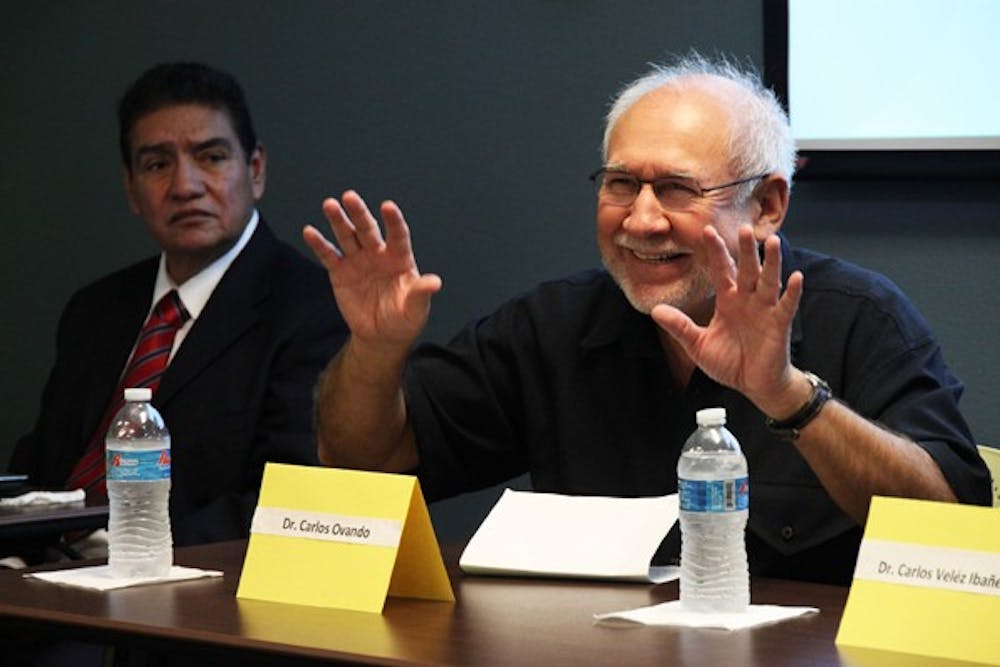As a result of Arizona immigration laws such as Senate Bill 1070, many migrants have left “el otro lado,” the other side, to return to Mexico.
These migrants, often called “retornos,” the returned, are a new problem for the Mexican government.
“Mexico with a population of about 105 million has enough problems without (the retornos) coming in,” School of Transborder Studies professor Carlos Ovando said.
The infrastructure to accommodate these retornos, some of which have Mexican citizenship and other don’t, just was not present in Mexico, Ovando said.
It is hard to find out the exact number of retornos because, just like those undocumented in the U.S., they are afraid to register with the government, Ovando said.
These people returned on the spur of a moment, Ovando said. This includes children of all ages, some of which lived in the U.S. for 15 years or more and only had a brief idea of what Mexico is, he said.
“The irony is that a lot of these kids who are of Mexican origin are now illegal in their own country,” Ovando said.
While in the United States, these children are looked upon as Mexican. When in Mexico, they are viewed as Americans and even more pejoratively as “gringos,” School of Transborder Studies director Carlos Vélez-Ibáñez said.
“(It is) the same way that Mexican-origin kids get discriminated here if they’re monolingual Spanish speakers … they’re going to get called ‘wet backs,’” Vélez-Ibáñez said.
Even if these children know Spanish, that is often not enough because they know a colloquial form of Spanish and might not be ready for instruction in Spanish, Vélez-Ibáñez said.
Mexico is not ready for this problem, he said, because either the teachers don’t care about these students or don’t have the bi-lingual training. There is nothing similar to English as second language classes in Mexico.
“These kids become isolated,” Vélez-Ibáñez said. “They become picked on. They become bullied.”
Family and Human Development graduate student Dulce Medina interviewed 21 families of retornos in el Estado de México, a state in Mexico, this summer. Medina said she was curious to see the way in which these families are integrating into Mexican society.
“They’re too American to be Mexican nationals but then here they’re too Mexican to be American,” she said.
On paper the government wanted these households to integrate, Medina said, but when it came down to implementing this, it was hardly successful.
“Enrolling these children in schools was a battle,” she said. “Each family that I interviewed had a different process that was told to them.”
Each family had to complete numerous amounts of paperwork and in some cases had to pay bribes to enroll their children in school, Medina said.
Medina noticed the parents and children in each family were integrating at different rates. While the community was generally accepting of the parents, the children, on the other hand, weren’t received as well.
The problem of acceptance increases the farther retornos get away from the U.S.-Mexico border, Vélez-Ibáñez said.
“You’re going to find Mexicans are highly nationalistic, that they are going to say (the retornos are) here, so let them learn Spanish or let them go somewhere else,” he said.
Reach the reporter at ryan.mccullough@asu.edu
Click here to subscribe to the daily State Press newsletter.





